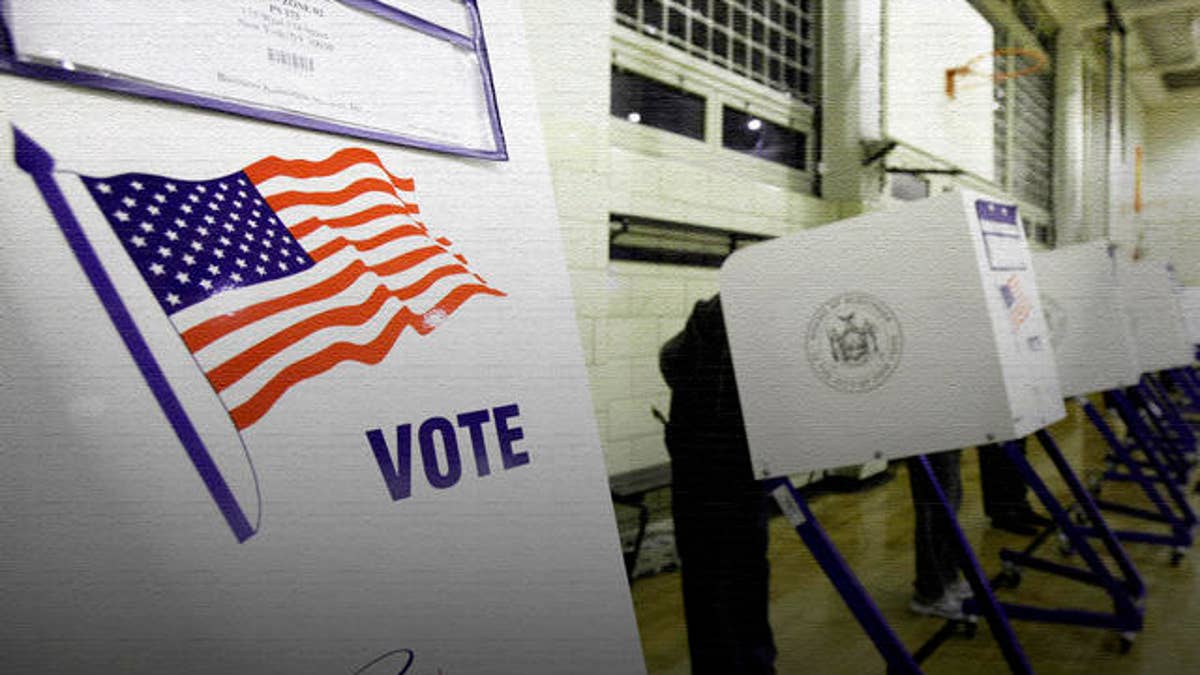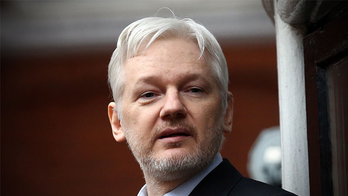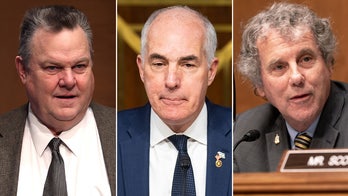
Voters cast their ballots in a school gym in New York's Harlem neighborhood, Tuesday, Nov. 2, 2010. (AP Photo/Richard Drew) (AP)
In another sign of a relatively young population reached the voting age—and so becoming a formidable force in electoral politics—more Latinos than ever voted in the 2010 midterm election, said a study from the Pew Hispanic Center.
The Pew study found that 6.6 million Latinos voted in 2010, up from the 5.6 million who voted in the previous midterm contests in 2006. As a share of the electorate, Latinos made up 6.9 percent of the 96 million voters in 2010, up from 5.8 percent of the 96.1 million voters four years earlier. The center released its report on Tuesday.
Among those record voters were 600,000 Latinos who turned 18 each year between 2006 and 2010 as well as 1.4 million foreign-born adult Latinos who became U.S. citizens and therefore eligible to vote, the center said.
"A lot of that growth is driven by U.S.-born young people who are coming of age and now (are) eligible to vote," said Mark Lopez, Pew Hispanic Center associate director.
Republicans and Democrats are certain to factor the voting numbers in any political calculation as they look to the presidency in 2012, control of Congress and elections for decades to come.
According to exit polls, Hispanic voters are a solid Democratic constituency, breaking for President Barack Obama by 36 percentage points in 2008 and for the Democratic candidate in their congressional district by 22 points in the 2010 contests. So theoretically, strong Hispanic growth in the Southwest and West could make some states more fertile territory for Democrats.Meanwhile, Republican resistance to changes in immigration laws is a critical issue for Hispanics.
Hispanics accounted for more than half of the U.S. population increase over the last decade, exceeding estimates in most states and totaling 50 million. The population's growth is attributed to births and immigration.
Still, voter turnout among Hispanics continues to lag far behind non-Hispanic whites and blacks.
Almost half of eligible white voters, 48.6 percent, and 44 percent of eligible black voters said they cast ballots in the 2010 elections. That compares to less than a third of the 31.2 percent of eligible Latino voters who said they voted. The difference between whites and Hispanics is similar to the gap in presidential elections, the center said.
And only 42 percent of the Latino population is eligible to vote, a smaller portion than any other minority group. More than three-fourths of whites, 77 percent; two-thirds of blacks, 67.2 percent and more than half of Asians, 52.8 percent, are eligible to vote.
It remains to be seen whether the growth in Latino turnout will be slowed by voter ID laws that half the states are considering or implementing. Democrats say the laws that toughen identification requirements for voters will squelch turnout by poor and minority voters. Republicans say they boost confidence in the voting process and cut fraud, although there is little evidence such fraud occurs.
Among Latinos who do go to the polls, college graduates had the highest turnout rate at 50.3 percent, while Latinos 18 to 29 had the lowest at 17.6 percent.
If candidates and voting groups hope to increase Latino turnout, they'll need to adjust to the youth bulge in the Latino population that Lopez said will continue to supply new Latino voters over the next couple of decades.
Maria Teresa Kumar, executive director and founder of Voto Latino, a get-out-the-vote group, said getting more young Latinos to vote will mean targeting them in English but appealing to their sense of family and community.
"We realized a lot of these young people, they speak Spanish but they function in an English-dominant world. They speak Spanish with family, Spanglish with their Latino friends and debate in English," she said. "If you send them voting materials in Spanish, they roll their eyes and say this must be for my parents."
Eliseo Medina, president of the Service Employees International Union, said she is confident interest in voting is growing among Latinos because of continued anti-immigrant rhetoric and growing involvement among Hispanics in community and civic affairs.
"I think the challenge is people need information. It's amazing people don't even know where to go vote, what is required and how to go and how to make a decision" on which candidates to support, Medina said, whose union helped start the Mi Familia Vota (My Family Votes), a get-out-the-vote group.
Hoping to tap more of those voters, a coalition of groups is holding citizenship workshops in 16 states and promoting citizenship through radio and television ads.
Pew Hispanic Center's analysis is based on the Census' Current Population Survey and Registration Supplement.
Based on reporting by The Associated Press.
Follow us on twitter.com/foxnewslatino
Like us at facebook.com/foxnewslatino




